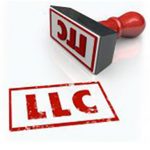When it comes to the division of their assets to their children, many parents want to be in complete control. One way to accomplish this is through the creation of a trust, which is a formal arrangement made with a trusted person, or trustee, which conveys property as directed by the creator(s) of the trust, or the trustor.
However, certain trusts must be irrevocable for estate tax and asset protection planning purposes. An irrevocable trust, just as it sounds, refers to any trust where the grantor cannot change or end the trust after its creation. Many people get turned off when the word “irrevocable” is raised, as they are unable to change or revoke the trust after it has been created. However, very often, a parent or grandparent will create an irrevocable trust for the benefit of a child or grandchild. There are several benefits to this, and several ways that an irrevocable trust allows parents to maintain control over the division of their assets to their children.
Magic Formula. The goal of planning is to “own nothing and control everything.” The magic formula is “control.” “Own” looks and sounds like an English word, but it is not. It is a legally defined concept. By contrast, “control” is what it seems to be. To paraphrase U.S. Supreme Court Justice Potter Stewart, you know it (control) when you see it.
Children’s Trust. How can parents maintain control of how their assets are divided, especially if they have multiple assets and/or multiple children? The first element of any estate planning for this purpose is a children’s trust. A properly structured children’s trust will give parents continuing control over the administration of their estate.
Choosing the Right Trustee. As with any trust, your decision as to who you will name as trustee is incredibly important, as they will maintain a significant degree of control over the trust and its assets after you have passed away. You will want to make sure that you take the necessary time to consider who is the best choice to serve as trustee, and you will need to ensure that the person you select is trustworthy, reliable, and willing and able to perform the duties required of them as set in the trust.
The best trustee is often the clients’ own parents, but it can also be one of your children. One positive of this is that your children will often be motivated to follow their parents’ wishes for fear of getting disinherited, ensuring that you maintain control over how your trustee performs their duties.
Trustee Removal Power. The parents must maintain the right to remove the trustee and name a new one. Rev. Rul. 95-58 provides that such a power does not result in estate tax inclusion if the new trustee is not “related or subordinate” as defined in IRC §672(c).
State Law. Section 411 of the Uniform Trust Code allows the settlor and all beneficiaries to petition the court to modify an irrevocable trust. Clients typically do not want to go to court, nor do they want to rely on getting cooperation from their children. However, again, children may cooperate if they know that the alternative is disinheritance. California has gone beyond the Uniform Trust Code: the settlor and all beneficiaries can modify an irrevocable trust without going to court.
Protectors. The broadest method to allow the parents to change an irrevocable trust is to name one or more protectors. Only a few states have codified provisions regarding Protectors, e.g., NRS 163.5547. Protector powers are limited only by your imagination, but generally include the power to change the allocations among the children and to change the manner of distribution. We often tell clients to not tell someone that they are named as a Protector until they need that person to act. In that situation, they should then float a trial balloon: “What would you think if I wanted to allocate 70% of the children’s trust to my daughter Sally, and only 30% to my son Jimmy?” Depending upon the Protector’s response, the parents will know whether to inform the respondent of his or her capacity as a Protector (or to move on to the next named Protector).
Single Member LLCs. Clients love the idea that they can continue to make 100% of the investment decisions. The single member LLC – with the irrevocable trust as the member and the parents as the non-member managers – is a terrific structure to provide both flexibility and control. Also, this makes it easier for the trustee, who may not want to be involved in picking stocks and bonds.
Miscellaneous. There are many structures that can help the parents keep control, both while they are alive, and even after they have passed away. Be prepared to discuss (i) private trust companies; (ii) grantor trust flip switches; (iii) powers of appointment; (iv) decanting powers; (v) trustee’s powers to terminate the trust and change it due to changes in the law; (vi) distribution advisors; (vii) selling assets from one trust to another; (viii) T-CLATs; (ix) charitable foundations; and (x) extended distribution clauses.
The attorneys at The Orlando Law Group can assist you in selecting the best structure for your trust, which will ensure that your wishes are followed and that your children or grandchildren are cared for after your passing. We represent and prepare estate planning documents for individuals throughout Orlando, Waterford Lakes, Altamonte Springs, Winter Garden, Lake Nona, St. Cloud, Kissimmee, and throughout central Florida.
If you are dealing with an estate planning issue or are looking to establish your own estate plan, please reach out to our office at 407-512-4394, fill out our online contact form.
If you have questions about anything discussed in this article or other legal matters, give our office a call at 407-512-4394 or fill out our online contact form to schedule a consultation. We have an office conveniently located at 12301 Lake Underhill Rd, Suite 213, Orlando, FL 32828, as well as offices in Seminole, Osceola and West Orange counties to assist you.
Last Updated on February 18, 2023 by The Orlando Law Group








